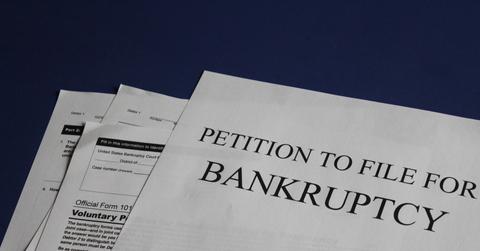In Some Cases, You Can Keep Your Tax Refund in Chapter 13 Bankruptcy
Chapter 13 bankruptcy requires most of a debtor’s disposable income to go toward repaying creditors. When can you keep your tax refund in Chapter 13 proceedings?
March 4 2022, Published 8:07 a.m. ET

As the tax season is upon us, people have all kinds of questions related to tax returns and refunds. Some taxpayers are also going through Chapter 13 proceedings and want to know if they can keep their tax refund.
In Chapter 13 bankruptcy, also known as the wage earner’s plan, debtors organize their finances under court supervision to repay their creditors. This type of bankruptcy is only available to wage earners, the self-employed, and sole proprietors. If needed, this plan uses 100 percent of the debtor’s disposable income for repayment.
Is tax refund considered disposable income for Chapter 13?
The general rule followed during Chapter 13 proceedings is that all of the debtor's disposable income should be turned over to the trustee assigned to the case. This includes all income not used for reasonable and necessary expenses such as food, transportation, and shelter.

However, whether tax refunds are considered disposable income depends on many things. If the refunds weren't accounted for in the income or expense calculations made while drawing up the Chapter 13 plan, the trustee might view them as disposable income. And if you're able to pay all necessary expenses while making plan payments from your income alone, the refunds could be seen as a surplus that should go into the plan.
Typically, tax refunds are required in all cases where unsecured creditors are paid less than 70 percent. Your plan should state if tax refunds are required for payments.
How to excuse a tax refund
In some cases, you might be able to excuse your tax refunds from being included in the repayment plan. The easiest way to do this is to show the court that you were counting on these refunds to make your repayment plan work. For example, you can argue that you need to keep the refund due to an increase in your necessary expenses that was not accounted for in the plan.
You can either try to excuse refunds in the initial plan or modify the plan later on. Drafting this in the initial plan might lead to objections from creditors and trustees. However, your chances of getting the plan approved might be better if you ask to keep a limited amount of the refund or you can show that you have a large annual expense that you usually allocate your refund to.
Modifying the repayment plan for excusing a specific tax refund
Modifying the plan later on to excuse a specific refund is also an option. For this, you'll need to state the amount of the refund and explain that you need the money for something that's both necessary and unforeseeable. Therefore, making a car payment or paying for utilities might not excuse the refund, but repair costs on your car or other appliances, funeral expenses, or unexpected medical expenses might.
